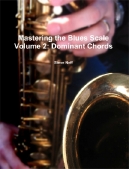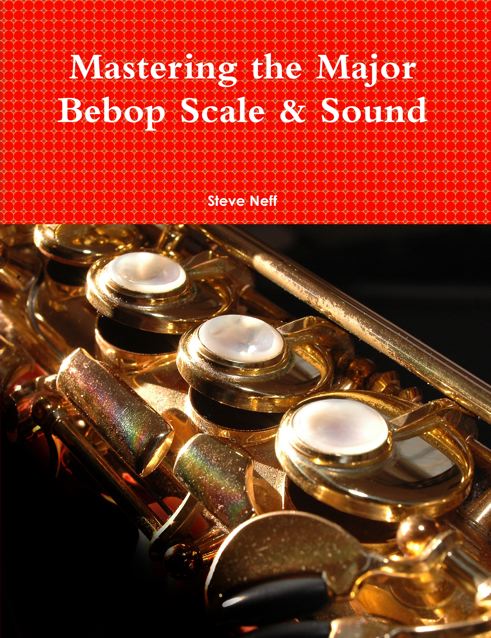Here’s a free sheet I give to all my students after they learn their major scales. It’s just a sheet with all the 12 Major Blues Scales on it. If you take a look at the sheet you might notice that the scales are the same as the scales on my free 12 blues scales sheet but that they start on a different note. For example, the F major blues scale is the same as the D blues scale (some people call this the minor blues scale) but the D blues scale starts on D and it’s home base root note is D. The F Major blues scale starts on F and it’s home base root note is F.
When I teach my students to use the major blues scales, I teach them to try to move off the b3 note quickly when playing. Many student who are new to improvising will land on the b3 and just sit on it without resolving it. This is a great note because there’s tension to it but tension sounds best when you hear it resolve. For example, if I’m using the A major blues scale and play a C, many times you will hear me resolve it to C# or to B which in most cases are more pleasing notes to the ear. It’s good to practice each blues scale to it’s corresponding major or dominant chord. Ex. A major blues scale- practice this over an A major or a A7 chord. There is slight variations in how you use this scale depending on the harmony behind it.
When you practice these scales over a major tonality or dominant tonality you want to practice resolving your lines to the three best notes in the scale. For Fmaj7 or F7 you would use the F major blues scale and try to resolve your lines to F, A or C. This takes focused practice at first but after a little while you will begin to hear where the notes of the major blues scale want to resolve naturally.
CLICK HERE TO DOWNLOAD –> 12-major-blues-scales
For more information and licks using the blues scales check out my two books on Mastering the Blues Scales. There are tons of great sound lines and licks in these two books!


I also have tons of lessons in my Neffmusic store on the blues scales and the 12 bar blues both for alto and tenor saxophone. I always tell my students, “If you can master the blues scale and wail with it………..you are ready for your first gig!”



Thanks for sharing the post. Kindly shares some video.I’m currently working on the f# minor nocturne! they’re beautiful pieces.Don’t get me wrong, you have to be strong and confident to be successful in just about anything you do – but with music, there’s a deeper emotional component to your failures and successes. If you fail a chemistry test, it’s because you either didn’t study enough, or just aren’t that good at chemistry (the latter of which is totally understandable). But if you fail at music, it can say something about your character. It could be because you didn’t practice enough – but, more terrifyingly, it could be because you aren’t resilient enough. Mastering chemistry requires diligence and smarts, but mastering a piano piece requires diligence and smarts, plus creativity, plus the immense capacity to both overcome emotional hurdles, and, simultaneously, to use that emotional component to bring the music alive.Before I started taking piano, I had always imagined the Conservatory students to have it so good – I mean, for their homework, they get to play guitar, or jam on their saxophone, or sing songs! What fun! Compared to sitting in lab for four hours studying the optical properties of minerals, or discussing Lucretian theories of democracy and politics, I would play piano any day.
But after almost three years of piano at Orpheus Academy, I understand just how naïve this is. Playing music for credit is not “easy” or “fun” or “magical” or “lucky.” Mostly, it’s really freakin’ hard. It requires you to pick apart your piece, play every little segment over and over, dissect it, tinker with it, cry over it, feel completely lame about it, then get over yourself and start practicing again. You have to be precise and diligent, creative and robotic. And then – after all of this – you have to re-discover the emotional beauty in the piece, and use it in your performance.
Well said even though I play tenor sax. Those hurdles and success points to me are much like Las Vegas when you’re pulling down that lever on a slot machine (or whatever’s they call it now). So many hurdles (failures) but those wins (like nailing a blues solo) is so great! One, pulling the lever, is at the other end of the study, practice, effort scale than playing music – so the end result is that much more a super feeling.
I was hoping for the major blues scales, as I already have a handle on the minor blues scales.
These are the major blues scales. F major blues scale is the same notes as a the D minor blues scale.